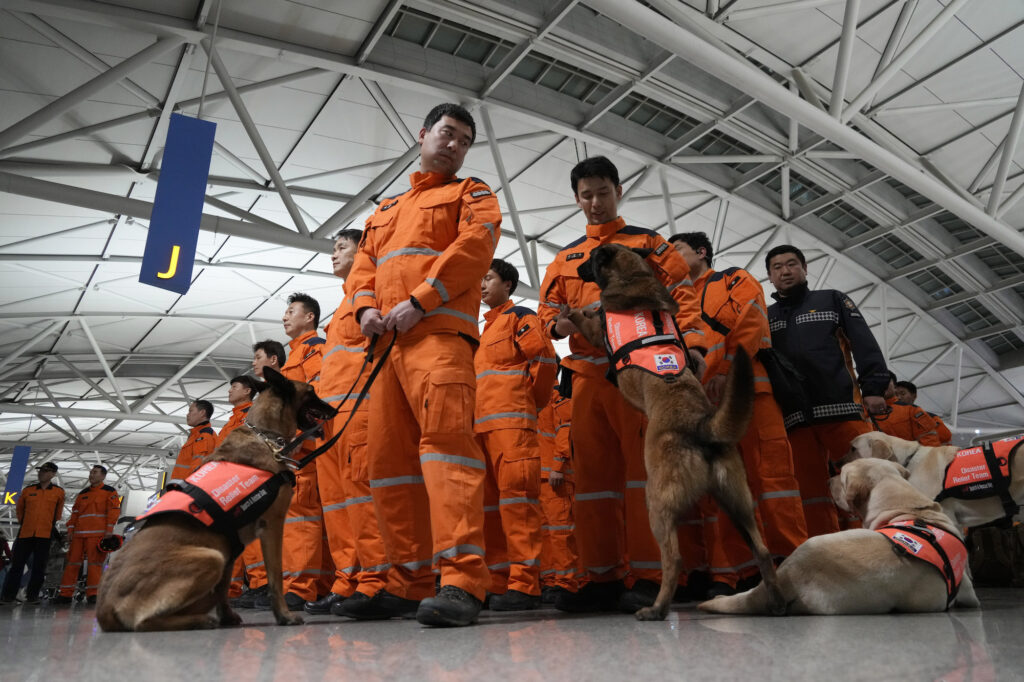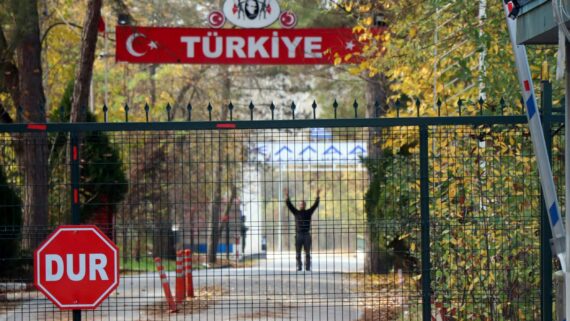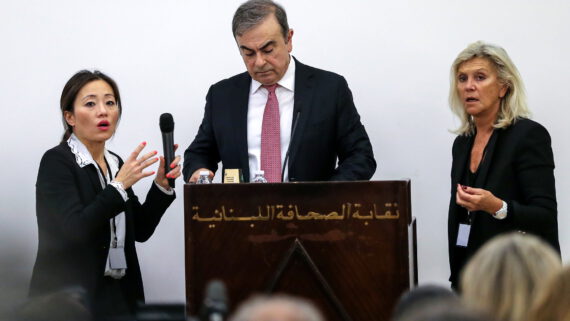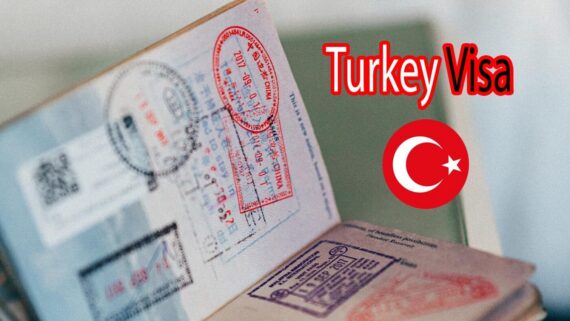Following the severe earthquakes in south-east Türkiye, the number of victims is rising rapidly. The earthquakes have damaged many houses and roads, as well as the infrastructure in Türkiye and Syria, a region where millions of civil war refugees from Syria have sought shelter. Our law firm have experiences of representing international humanitarian assistance operators such as humanitarian assistance funds, donors, agencies, international organisations, inter-governmental organisations and international NGO’a operates in Turkey. In response to an international humanitarian organisation’s request for receiving legal support for their operation in Turkey and intention to hire local lawyer to provide them Turkish and international humanitarian law advice, we provide legal services pertaining to the regulations that may impact NGO’s, with a particular emphasis on rules and regulations affecting reporting, registrations, residence permits, work permits, etc.
International Humanitarian Aid Operations in Turkey
International Humanitarian Aid Operations are needed when the life for millions across Turkey and Syria changed forever on Monday 6’th February 2023, as two consecutive earthquakes sent shockwaves across hundreds of miles. Nine hours apart and measuring a magnitude of 7.8 in Pazarcık (Kahramanmaraş) and 7.5 in Elbistan (Kahramanmaraş) on the Richter scale, the quakes were the region’s strongest in nearly a century.
Humanitarian assistance
Throughout history man has been exposed to all kinds of disasters; but in modern times mankind has become aware of its responsibility towards those struck by disasters, and of its increased capability of coping with their consequences. Out of this growing awareness arose the concept of humanitarian assistance as a reflection of solidarity; this was followed by the formulation of legal rules governing such activity. Parallel to the need to provide humanitarian assistance is the corresponding right to such assistance.
Humanitarian assistance can be provided at the national or international levels; this applies also to the legal rules governing such activities. Rules relating to national humanitarian assistance may vary widely between countries.
Framework for NGOs
Turkey has its own rules of registration and expect NGOs, local or international, to abide by these rules. The UN Resolution 46/182 (1991) and Humanitarian Charter (2011) grant the primary authority on managing assistance to the affected state and require NGOs to provide humanitarian assistance only after being invited or permitted by affected country governments. However, the hosting government has the primary responsibility in the facilitation and governance of NGO operations.
The legislative frameworks constructing the operating environment of NGOs in Turkey are;
- Law No. 4721 Turkish Civil Code,
- Law No. 5253 on Associations,
- Law No. 4817 on Work Permits and Regulation on Work Permits of Foreigners under Temporary Protection.
Responsibility
Responsibility for rendering humanitarian assistance remains with the Turkish community and Turkish State where the disaster occured. International humanitarian assistance becomes necessary where the Turkish State involved encounters difficulties in assuming this responsibility alone, and when it considers that international action could successfully supplement and complement national efforts, always respecting national sovereignty.
AFAD
Afet ve Acil Yönetim Başkanlığı (Disaster and Emergency Management Authority, AFAD) is a governmental institutions and state-affiliated organisations affecting humanitarian space in Turkey. AFAD is disaster management body operating under the Ministry of Interior, appointed as the main coordination office on earthquake response It facilitates coordination of NGOs in alliance with the Governor in the provincial level.
International organizations
International humanitarian assistance is carried out by States or by various international organizations, inter-governmental or non-governmental. Without their involvement humanitarian assistance may fail to materialize. Thus, international organizations are an indispensable factor in humanitarian assistance. Humanitarian relief personnel as well as objects used for relief operation must be respected and protected.
Past Experiences
Turkey has its own rules of registration and expect NGOs, local or international, to abide by these rules. The government of Turkey adopts restrictive legal frameworks while at the same time seeking to cooperate with NGOs without applying these laws, which creates ambiguity especially for NGOs Subjective criteria in the legislative frameworks gives ground for the government to apply in accordance with its political interests. Sice the government itself provides services, it can seek to prevent competition and suppress NGO operations by employing vague legislation.
In mid-July 2017, Turkish police stormed the premises of a Starbucks in the border town of Gaziantep, checking the IDs and laptops of foreign aid workers responsible for delivering vital supplies to needy Syrians across the border. The Turkish crackdown has primarily targeted large American aid agencies, including Mercy Corps, Save the Children, World Vision and the International Medical Corps, which were expelled from the country.
In April 2017, 14 International Medical Corps staff were brought to police headquarters to check their documentation and subsequently detained. Four non-Syrian expats were deported the following day, and the remaining 19 Syrian staffers were sent to deportation centers. In July, Turkish national police detained a Syrian employee at World Vision’s Gaziantep headquarters, even though the individual had a valid work permit.
Shuting down NGOs or Bureaucratic obstacles
Turkey has a past experience of shuting down hundreds of NGOs in the country, claiming they support groups that oppose the government, or has instituted bureaucratic hoops that make it almost impossible for international NGOs to function. One NGO reported that Turkish inspectors showed up at an NGO’s office and levied a huge fine because it “didn’t have a fire extinguisher in the right place.
Aid groups faced layers of bureaucratic obstacles from myriad state agencies, including the Finance Ministry and Turkey’s intelligence branches. The organizations were required to hire more Turkish nationals and provide detailed accounting of their sources of funding and the recipients of aid in Turkey. Aid workers were also being forced to obtain or renew work permits that are rarely issued and, if they are caught without them, could face detention and deportation.
Ambiguous criterias
One of the means that Government of Turkey utilises to regulate and restrict the operations of NGOs is through ambiguous criteria which includes phrases of contrary to the laws and ethics, public morality, and public security and allows an unlimited breadth of subjective practices to the government offices. Article 56 of the Turkish Civil Code states that “…association may not be formed for an object contrary to the laws and ethics”. The same phrase is included in the conditions for dissolution in the Article 89 of the same law.
Additionally, legislation grants absolute prudence to the relevant ministries over foreign NGOs particularly. Article 5 of the Law on Associations states that foreign NGOs can open offices and operate in Turkey upon the permission of Ministry of Interior and consult of Ministry of Foreign Affairs. Practice proves that ministries arbitrarily used this phrase in accordance with the nature of political dialogue with the origin country of NGOs, in several cases reaching to prolonged processes with no feedback.
Dissolution process
It is claimed that dissolution process is even more non-transparent than the registration. Article 89 of the Turkish Civil Code states that the court regulates the closure of an NGO, however in practice the Ministry of Interior, without obtaining a court order, closed down or confined the activities of several foreign NGOs whose actions are claimed to be a threat to public security. Additionally, on restrictions through legislative frameworks, Article 14 of the Law on Work Permits gives an arbitrary power to the Ministry of Interior for the rejection of work permit applications of foreigners through sections;
- The Ministry of Interior expresses a negative opinion,
- Working of the foreigner forms a threat for national security, public order, general security, public interest, general ethics and general health.
Such an hostile or arbitrary approaches are ultimately “self-defeating” because the more Turkish authorities make life difficult for the NGOs, the less aid gets into Turkey, and the more pressure the government is going to have on the homeland.
Legal services
We have experience for providing legal consulting, legal and administrative transactions and representing services to support the international humanitarian assistance operators in Turkey, Our services, among others, include;
- Developing Turkey-specific initiatives which naturally lead to conducive relations with hosting Turkish government.
- General advice, verbally or in writing, related to contract drafting and review, local laws and regulations, and business registration matters in Turkey.
- Pro–actively communicate any changes to the regulatory environment that may impact NGO agencies responding to the Turkish and Syrian emergency, with a particular emphasis on rules and regulations affecting reporting requirements, registration processes, work permits and employer-employee relations.
- Verbal and written legal opinion on operational matters sought by NGO’s.
- Being present at meetings that may require legal advice and/or guidance to be given.
- Visiting NGO’s main office as required and appropriate, to effectively facilitate the Contractor’s provision of services.
- Reviewing and advising on employment contracts, policy and procedures and possible dispute resolution and keep NGO up-to-date with relevant labour law changes.
- Assisting in, initiating and following up on the procedures for residence permit applications and residence permit renewals for non-Turkish staff employed by NGO.
- Provide consultancy and status evaluation regarding work permit application criteria for NGO’s International staff and local staff working in Turkey.
- Managing the application process for a foreigner’s work and residence permits and guidance on the paperwork to be submitted for each application.
- Evaluating the status of the international operator and the foreign employee from the perspective of the work permit law and other relevant regulations.
- Providing consultancy on short-term employment and advise NGO on the legal requirements and related regulations on work permit, and provide updated information on any changes to the regulations.
- Completing the online application and submission of paperwork for each application the Ministry of Labor and Social Security and follow up with the Ministry of Labour and Social Security and keep NGO informed about the updates for each application. Inform NGO when pre-approvals and approvals received
- Assist in obtaining work permission for employees in various professional fields.
- Guiding in the case of a rejected application and consultancy on the appealing process.
- Providing consultancy services regarding legal issues, especially on Associations Law, Labour Law and other related laws.
- Drawing up drafts of all kind of agreements and rendering legal opinions accordingly
- Providing liaison office establishment services
- Providing branch office establishment services
- Prepare all kind of documents and agreements; in particular Power of attorney, Employment Contracts, Loan Agreements and Rent Contracts
- Preparing reports weekly or monthly base
- Facilitation of Residence Permits:
- Preparing and submitting all necessary documentation for residence permit applications, including all notarisation, official translations, and all other tasks necessary to make residence permit applications in Turkey. This includes payment of fees and charges associated with applications (to be reclaimed from NGO on production of receipts).
- Advising NGO on any/all changes to the law in relation to residence permits and to advise on the most economical and timely processes for successfully receiving Residence Permits for NGO’s international staff.
- Facilitation of Work Permits: Preparing and submitting all necessary documentation for Work permit applications, including all notarisation, official translations, and all other tasks necessary to make work permit applications in Turkey. This includes payment of fees and charges associated with applications (to be reclaimed from NGO on production of receipts).
- Advising NGO on any/all changes to the law in relation to Work permits and to advise on the most economical and timely processes for successfully receiving work permits for NGO’s international staff.
- Providing commentary, suggestions and advice (verbal or written) to NGO’s authorized personnel in response to their questions on Turkish law and any official procedures.
- Advocating and litigating on behalf of NGOs to ensure that they are able to access available legal protections under domestic and international law
Disasters, both natural and manmade, can result in large populations in immediate need of legal assistance on a number of topics. Although it is difficult to know when disaster may strike, as one of legal services providers Bıçak have a plan in place to mobilizey attorneys to provide assistance when necessary.
Bicak Law provides needs-based humanitarian assistance to the people hit by man-made and natural disasters with particular attention to the most vulnerable victims. Bicak is channelled impartially to the affected populations, regardless of their race, ethnic group, religion, gender, age, nationality or political affiliation.
 English
English Türkçe
Türkçe Français
Français Deutsch
Deutsch







Comments
No comments yet.